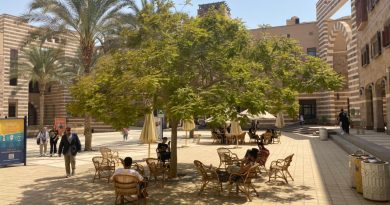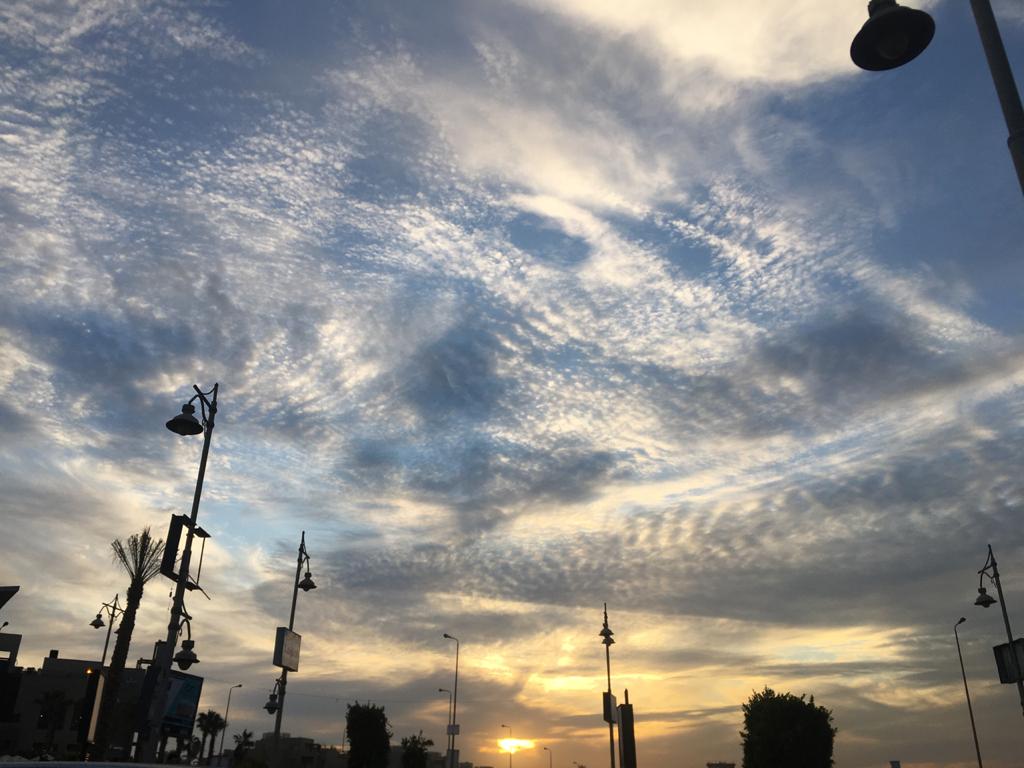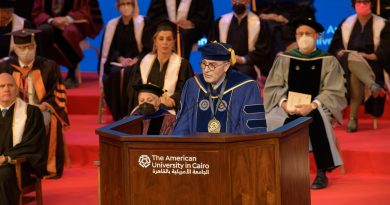El Serk El Masry – A Glimpse into Socio-Political Injustice
By: Mariam Gabr
@mariamgabr11
![Baher Ezz El Deen's play brings to the forefront the injustices many Egyptians face in asserting their political rights [Mariam Gabr]](http://www.auccaravan.com/wp-content/uploads/2016/11/15126053_1127518087303751_1412834196_o-e1479739524356.jpg)
In the dark humor play El Serk El Masry (The Egyptian Circus), actor Baher Ezz El Din uses poetic dialogue and sarcasm to describe the corruption in government and media institutions in Egypt.
The one-hour play was recently performed by Metro Troupe, a group of 17 performers, at the Sawy Culture Wheel.
El Serk El Masry this year won a number of accolades, including best director for Ezz El Din at the Cairo Arts Awards.
“I’m picturing Egypt as a circus, where you have to be a comedian to be able to cope with the traffic, the crowded metro, the very slow pace of governmental processes and offices, this is the reality we’re living in,” Ezz El Din told The Caravan.
“So, don’t tell me to build my future when my basic rights as a human being are not provided,” he added.
Despite the low budget – Ezz El Din and Metro Troupe are financing the production – the play successfully illustrates the average citizen’s daily predicaments.
The basic costume design consisting of plain white shirts and black pants worn by most of the actors and actresses throughout the entire play, and low-priced props which included metal chairs used as beds, all contributed to the atmosphere.
The scenes quickly shift from a metro rail ride to a government-owned hospital to government offices – each setting providing a glimpse into the daily struggles, fraud and exploitation Egyptian citizens face.
In the prison scene, the audience meets main character Samir who had become disenfranchised after being tormented, beaten and demeaned in jail for criticizing the Egyptian government on social media.
He ended up in a Muslim ‘cult’ and was imprisoned for engaging in terrorist attacks.
“I’ve never felt that number of diverse emotions in just one hour.” Salma Ashraf, a Modern Arts and Sciences Broadcasting graduate, told The Caravan.
Menna El Husseiny, who plays several roles – bellydancer, government employee and metro rail scofflaw – used her different characters to sway the audience from laughter to tears to pure melancholy by the range of her skill.
“My parents are against me acting, they think that this is just a phase in my life, and that I am still young and crazy, and that I will stop acting at some point…What they don’t know is that I am like a fish, if I leave the theatre I will die,” El Husseiny told The Caravan.
El Husseiny dreams of changing theatre in Egypt by breaking the stereotype that productions fail or succeed depending on the star caliber of its main performer, she says.
“Theatre in Egypt has been steadily declining since the seventies and has now reached its lowest point.” Mahmoud El Lozy, Professor at the Department of the Arts told The Caravan.
Ezz El Din, who agrees with Lozy’s criticism, has been trying to deliver a pragmatic message to his audience through the seven plays he has produced.
“I am not against comedies, but laughing without thinking, laughing without tearing up because of overwhelming emotions and resentment is meaningless,” Ezz El Din explained.
Ezz El Din, who is also a poet, writes his scripts in poetic modes.
The closing act was Samir’s trial in court, and his lawyer’s acrimonious monologue that reprimanded the malfeasance of the unjust and malfunctioning system of Egypt.



